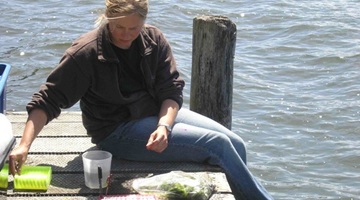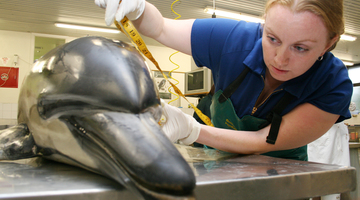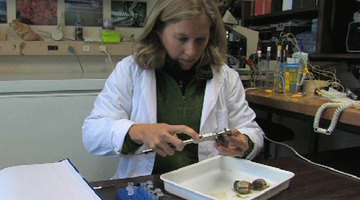Dr Candida Savage, from the University of Otago, has always loved the sea and knew from an early age she wanted to work in the marine environment. In this video, she talks about her role as an ecologist and what she enjoys about the job.
Point of interest
Think about why it’s important for ecologists (and other scientists) to collaborate.
Transcript
DR CANDIDA SAVAGE
Ecology is basically the study of plants and animals and their interaction with the environment. So, as ecologists, we’re interested in how animals or plants respond to changes in the environment and in terms, also, of how that environment influences the animals and plants living within them. Probably from about the age of 6 I knew that I wanted to do this. I used to go fishing with my dad and loved being out at sea. So I guess, from a fairly young age, I knew what I wanted to do and knew it had to be something along the lines of working in marine environments. It’s the creativity side of it as well – you get the chance to think up research ideas – and then it’s the challenge of trying to develop the study that’s the best way to answer those questions. And I think that’s what I really enjoy about it is that there are several different components to your work, so you’re doing research both in the field, in the laboratory, and then you are also working as an advisor with students. There’s no way that you can be an expert in everything when you are working on different species and you’re working across different systems as well, so you try and collaborate with people that have the expertise in a particular field or in a particular area of knowledge. And so we do work with people that have a much stronger chemistry background and they can help us interpret the data that we are seeing, and we work with people who work on sediment changes on a microscale level – so looking at changes that go on in millimetre scales – to try and interpret some of the processes that we’re measuring, and then I also work with people who come from a biogeochemistry background, to try and understand the geological component of these changes through time.




